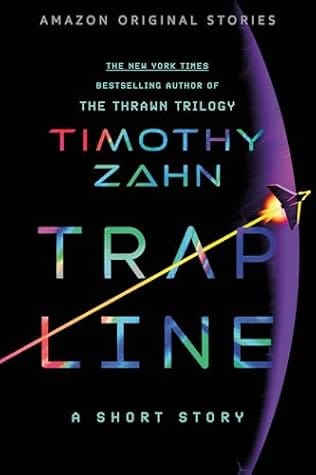Different Books at Different Times
One of my favorite things about books is how the same book can seem completely different at different times in your life. The best books can be profitably read again and again, with new insights each time. There have been a few books I tried to read, but I found that I had no enthusiam for them. For example Farmer Giles of Ham, by J. R. R. Tolkien. I found the short story rather boring the first time I read it, but I came back to it a few years later, and I greatly enjoyed it. Conversely, there have been books I really liked the first time I read them, like The Diamond Age, by Neil Stephenson, that I had to put down unfinished on a second reading. I hope it means my taste is getting better, but there really is no telling.
After recently finishing Burning Tower, I moved back to the Seafort Saga, by David Feintuch. I started these books two years ago on the recommendation of my late friend John J. Reilly. John's website, now defunct [but available on the Wayback Machine], had a review of the 5 of 7 books in the series that were available in 1996.
Who says they don’t write space-opera like they used to? I do. The Seafort Saga is a good example of how science fiction bears the imprint of the period in which it was written.
In some ways, this series might have been written in the early 1950s. Certainly the author makes assumptions that science fiction writers have been making for fifty years. Thus, a way has been found to travel faster than light and the United Nations has become a world government. More generally, certain aspects of life in the future closely resemble life in the author’s favorite area of the past, which in this case seems to be Queen Victoria’s navy.
John was my intellectual mentor on the internet, so I see things through lenses I got from him. I got into this series because I am interested in the cycles of history, and Feintuch created a world where the Second Religiousness took the form of a unified Christianity with a distinctly Anglican flavor. In fact, the whole world has a very English flavor, the United Nations Navy in space is an imitation of the Victorian Navy, and the social mores of the world have an early Victorian flair to them.
The first time I read this book, I was struck by the character of the eponymous Nicholas Seafort. I think he seems a lot like me, in a bad way. Whereas Colonel John Falkenberg is the man I wish I were, Nicholas Seafort is the man I am afraid I am. Perfectionistic and self-critical to a fault, alternating between decisive action and the brink of despair, awkward with the men under his command, apt to legal literalism, and quite lucky. I found the series a bit too depressing, and I had to put the book down.
The second time through, now I am struck by the kinds of choices Seafort makes in command, comparing and constrasting them with other novels about command that I like (cf. Pournelle corpus), and my own actions as the leader of an engineering team. I'm just enough older to feel more comfortable in my own skin, even though I still see in Seafort something of myself. I also see the strictness of the neo-Victorian navy's regulations in a different light. The regs are interpreted with an eye to the long term stability of the entire system, rather than looking primarily to see that justice be done here and now.

Comments ()